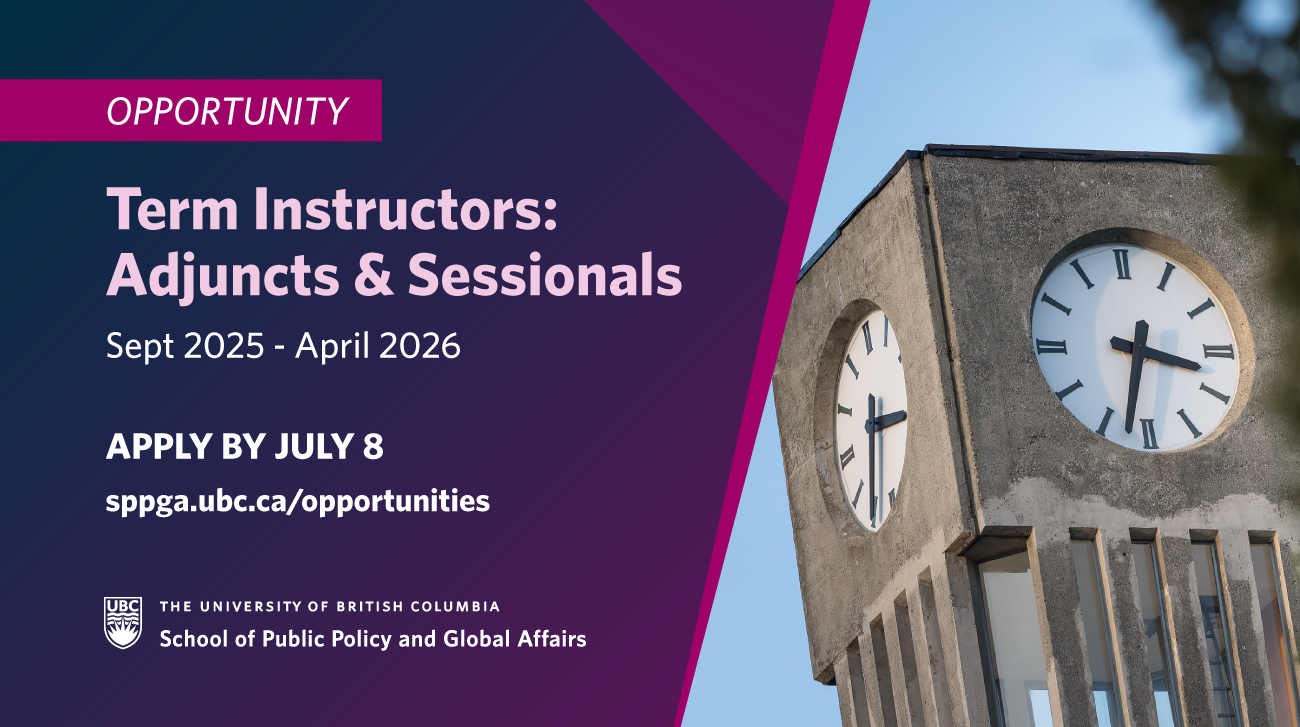

Blog Post: Leaders’ Debates Commission
by Spencer McKay, Research Associate, Centre for the Study of Democratic Institutions (CSDI), School of Public Policy and Global Affairs
This was originally posted on CSDI’s website here.
Over the last year, the Centre for the Study of Democratic Institutions provided advice to Canada’s Leaders’ Debates Commission – based on reviews of the academic literature, interviews with key stakeholders – and organized a workshop that brought together experts to discuss the Commission’s experience in 2019. In this blog post, CSDI’s Research Associate Spencer McKay looks ahead to the future of the Commission.
On June 1, 2020, Dominic Leblanc, the President of the Privy Council, tabled a report from the Leaders’ Debates Commission in the House of Commons. His accompanying statement noted that “we are actively reviewing the report”, although the ongoing COVID-19 pandemic and the recent scandal around the WE Charity have clearly taken precedence, leaving the future of the Debates Commission unclear. Given that Canada currently has a minority government, there is always a looming possibility of an election and, thus, leaders’ debates. A number of the recommendations in the Commission’s report need to be developed in advance of the writ being dropped to avoid repeating the problems identified by the Commission. In this blog post, I’d like to highlight the short-term decisions that need to be made and the kind of research that’s needed to improve Canadian leaders’ debates in the long-term.
The Commission’s mandate was to organize two “effective, informative, and compelling” debates, one in English and one in French, and to report to Parliament on the experience. Debates prior to 2015 were usually organized by a consortium of broadcasters, although this arrangement ended when Prime Minister Harper refused to participate in the consortium’s planned debate. While multiple organizations organized their own debates in 2015, concern about the uncertain provision of future debates led the Trudeau government to create the Debates Commission in 2018 through an Order in Council.
The Commission’s report to Parliament highlights that the unique potential of the Commission as an independent debate organizer was undermined by its lack of capacity to make key decisions. The criteria that determine who would be invited to the debate were set by the government of the day, raising questions about their appropriateness as well as leaving the Debates Commissioner in the unenviable position of interpreting criteria that were difficult to operationalize. Furthermore, the actual production of the debates was contracted out to a consortium of broadcasters, leaving the Commission with little say over the format. As a result, a number of the recommendations focus on giving the Commission greater autonomy and independence and allowing it more control over the participation criteria, the debate format.
If these recommendations are to be adopted, they ought to be adopted sooner rather than later. There is currently no Debates Commission. If the government were to lose confidence of the House, an election might be held which reverts to a scenario more akin to 2015, with no Commission-organized debate. The government should move to re-establish the Commission quickly and ensure the appointment of a Commissioner who is capable of earning the trust of the parties. These appear to be necessary first steps to enabling the Commission to exercise increased control over the participation criteria and the format.
While a truly independent and empowered Commission could help improve the elections process, the Commission also needs relevant expertise. As the Commission itself noted in its report, “we need to learn so we can continue to improve.” This Commission teamed up with the Canadian Election Study to produce an unprecedented report based on original survey research while the CSDI contributed a review of existing literature on election debates. The Commission could further study election debates by convening focus groups, as has been done in a number of studies in the US and the UK, or simply taking steps to facilitate research by others, such as by creating an accessible repository of debate transcripts and recordings. Currently, the CSDI is attempting to further research on election debates, including analysis of available transcripts from other sources and news coverage of the debates.
The hope is that this research will provide insight into how to improve the debates process. For instance, the Canadian Election Study findings suggest that there is nearly a consensus view among viewers (84%) that moderators should “should have done more to push leaders who avoided answering the question”. This suggests that the Commission should require moderators who have the skills and experience to effectively follow-up with party leaders. Furthermore, a review of the existing literature reveals the need for more research on the influence of scheduling and the number of debates on overall viewership.
At the end of the day, the debates belong to Canadians. One of the Commission’s guiding principles is “democratic citizenship” and, while surveys are a useful first step, it may be useful to broaden citizen influence in planning the debates. In 2019, citizens from around the country posed questions to party leaders, although citizens have asked a greater proportion of questions in previous debates. Some research suggests that this may allow the Commission to address the nearly 64% of English-language debate viewers who noted that the debate did not cover issues that were important to them. Alternatively, the Debates Commissioner may wish to reserve seats on the Commission’s advisory board for citizens who might bring different perspectives. Another possibility is the use of a more robust public engagement mechanism – such as a citizens’ assembly or reference panel – to help the Commission make decisions about fundamentally normative questions, such as participation criteria.
The Debates Commission is a novel Canadian experiment, although its long-term success requires that it is quickly reconvened, given adequate preparation time and funding, encouraged to conduct relevant research, and empowered to make key decisions.


